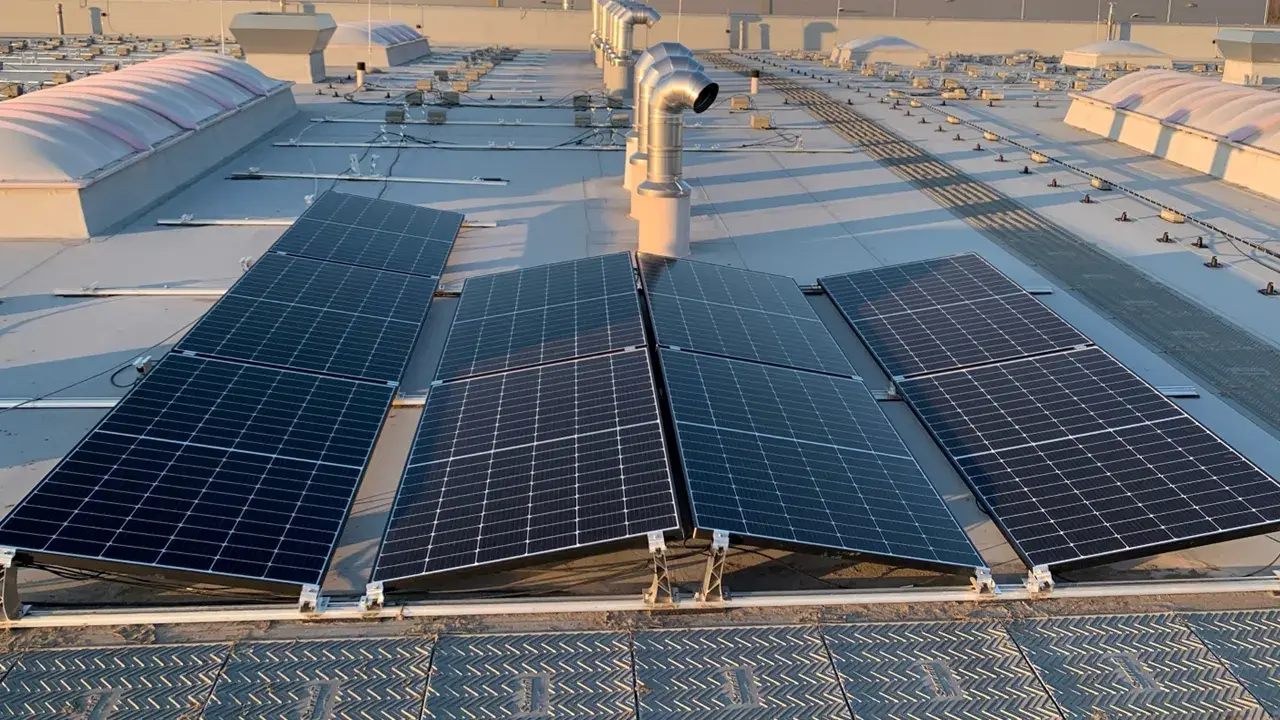The energy sector accounts for a large share of greenhouse gas emissions. Wherever fossil fuels such as coal, natural gas or mineral oil are converted into energy, so-called "energy-related emissions" are released (carbon dioxide (CO2) or air pollutants). Currently, CWS obtains electricity from the grid and uses natural gas for heating processes. In 2021, for example, CWS caused CO2 emissions, which are originated from the generation of purchased energy, of 3,421 tonnes.
The expansion of renewable energies, on the other hand, has a positive effect on the CO2 balance. One initiative to reduce CO2 emissions at the company is therefore the implementation of renewable energies, such as solar energy. The installation of hybrid solar panels can generate electricity and heat up water simultaneously. Recently, a photovoltaic system was installed on the roof of the CWS building in Čakovec, Croatia (see picture). Further photovoltaic systems are planned for Solingen (Germany), Den Bosch (Netherlands) and Glattbrugg (Switzerland).
With each measure, we are one step closer to our ambitious climate goal of reducing 50% of our emissions by 2030!
